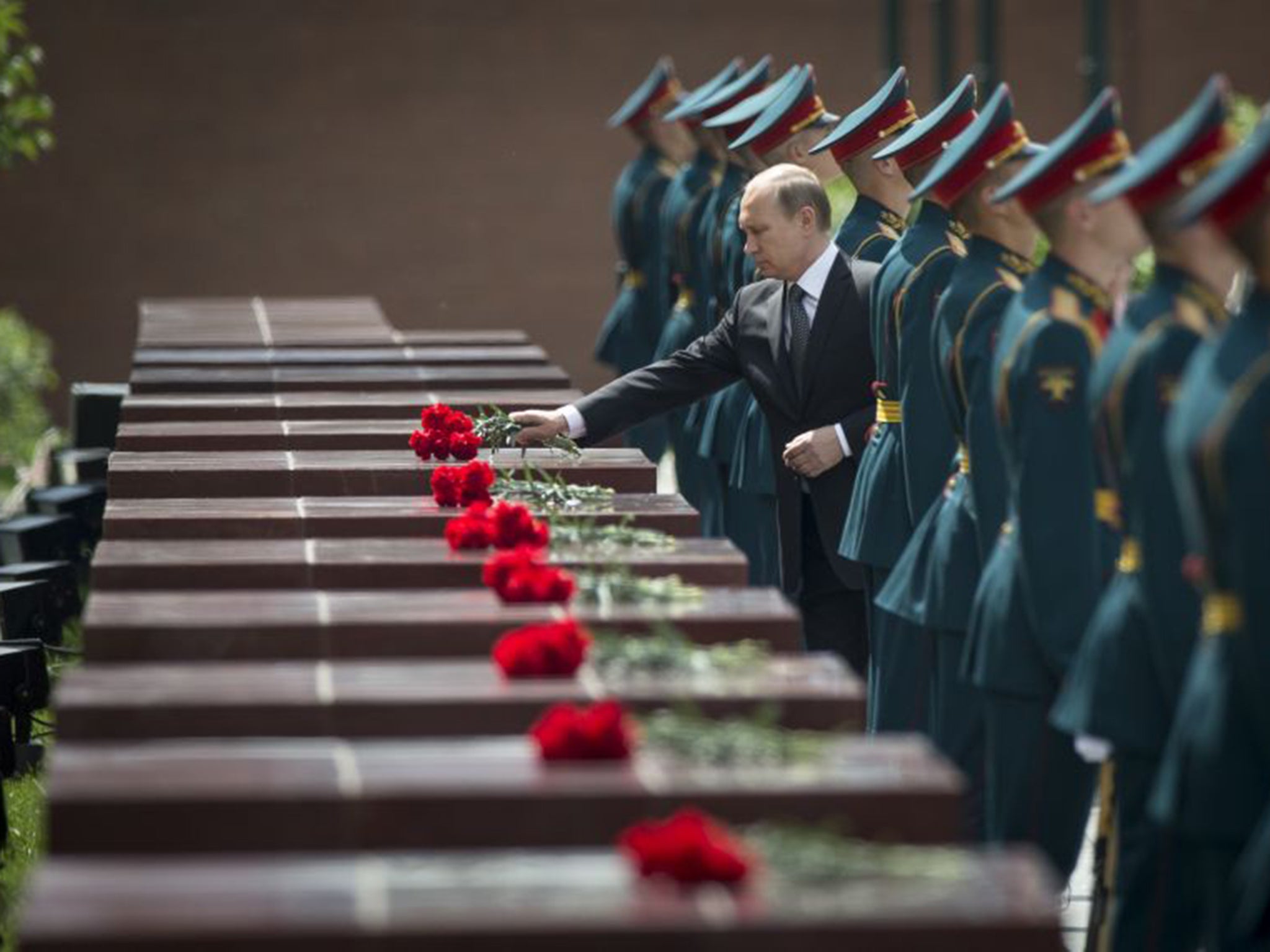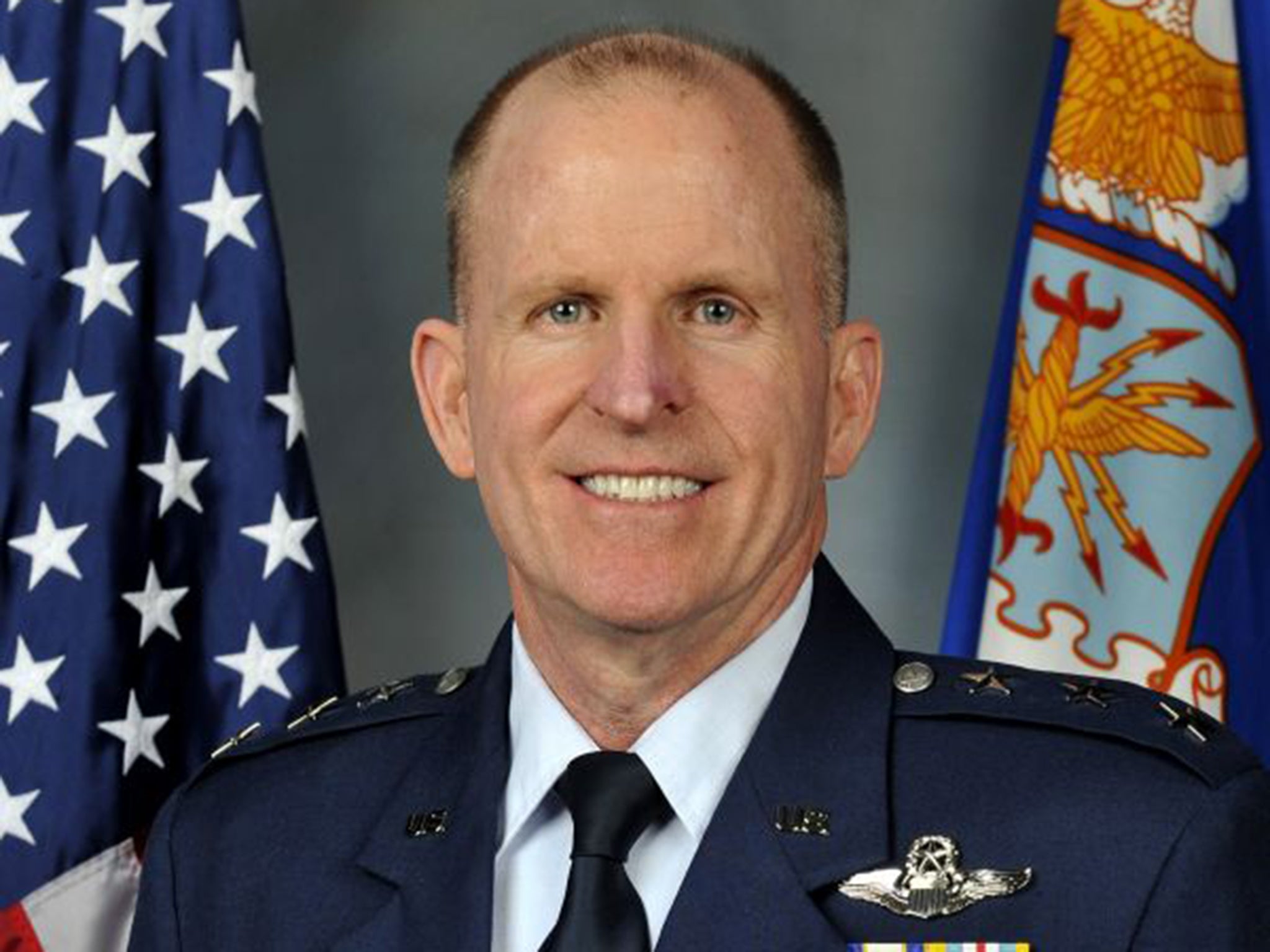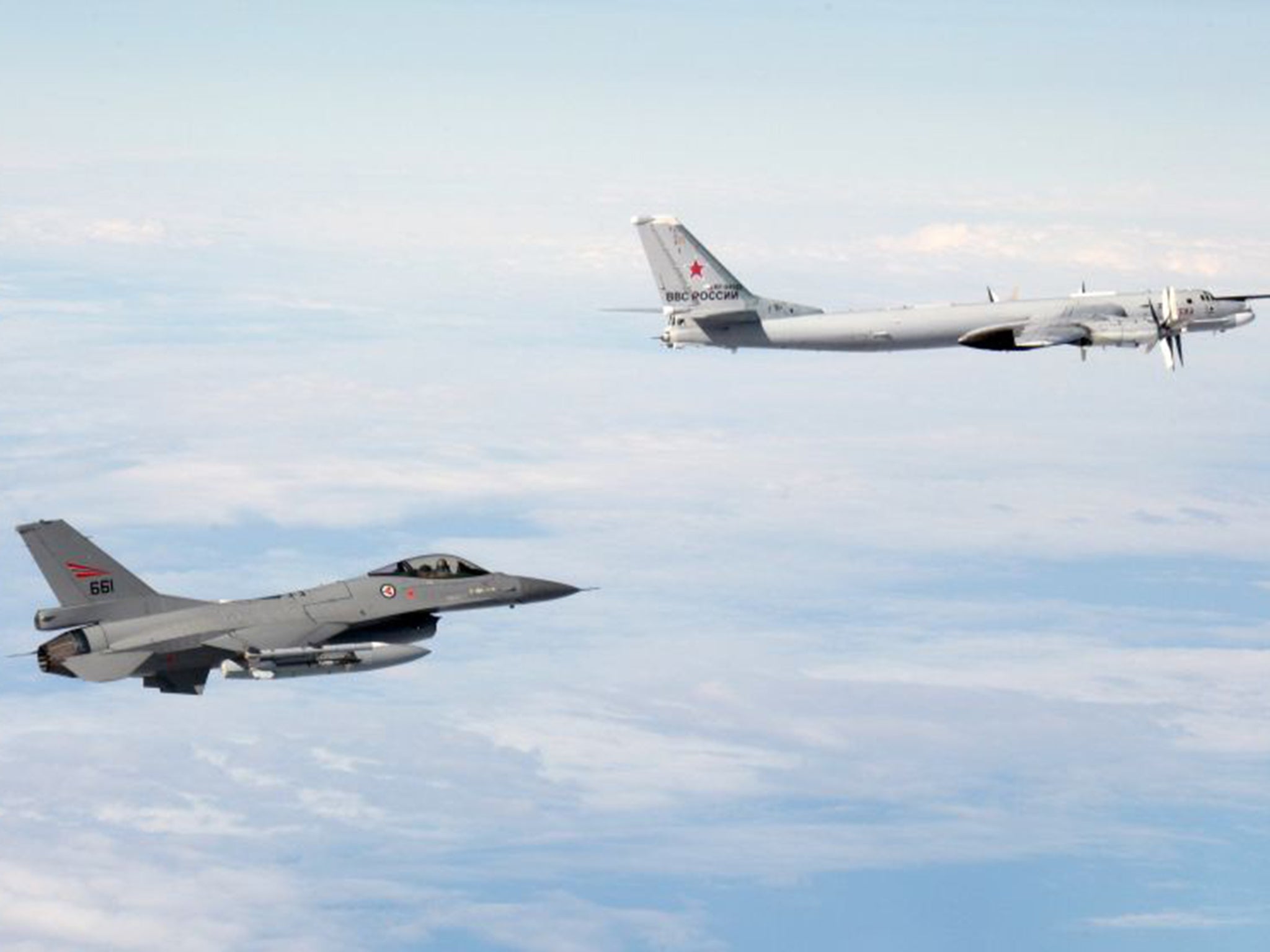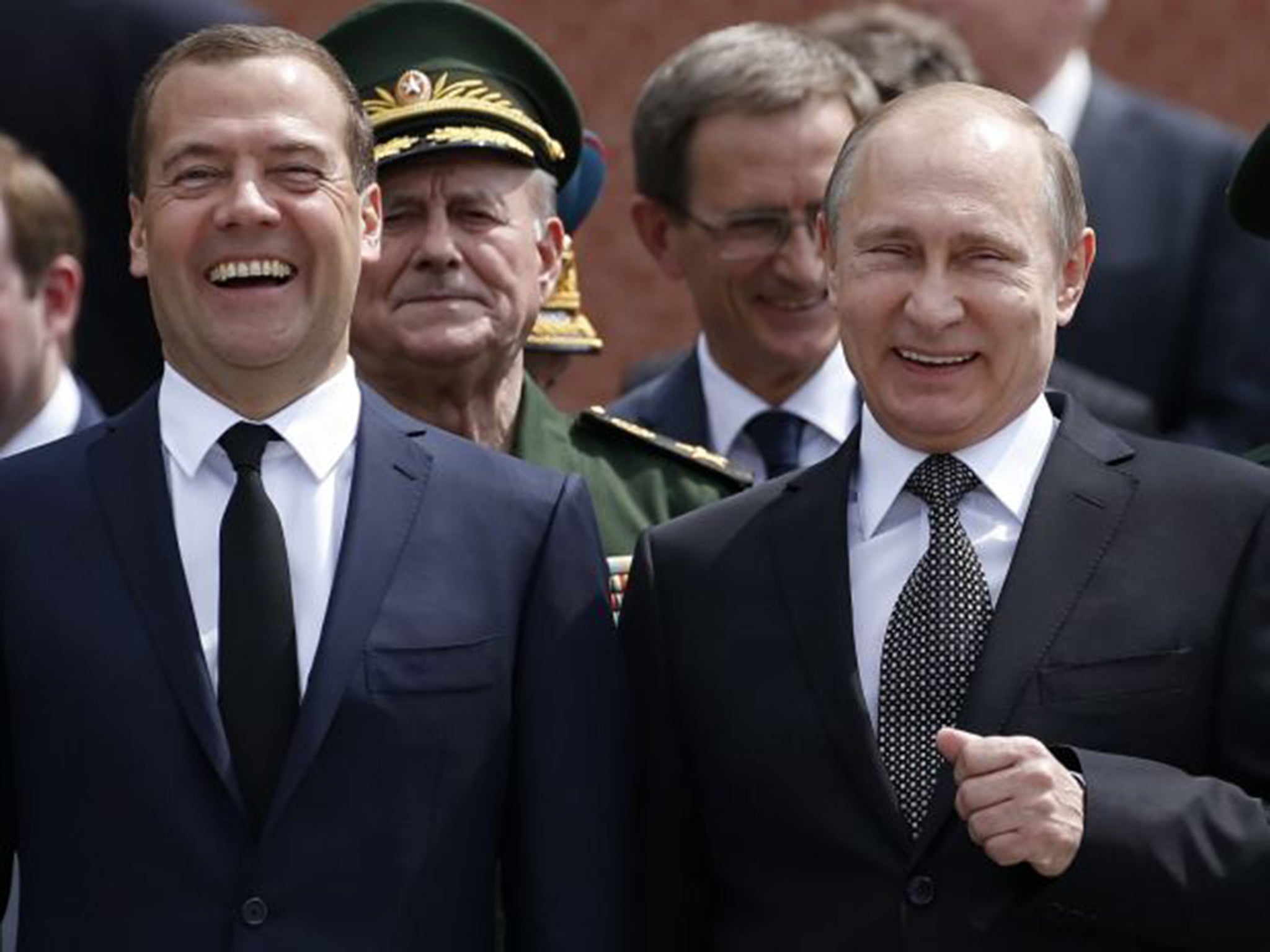Russia 'aggression': US nuclear missile commander says Vladimir Putin's actions echo those of Nazi Germany in the 1930s
‘I don’t think we’ve ever seen so much power given to one person in Russia’ says head of US Global Air Strike Command

Your support helps us to tell the story
From reproductive rights to climate change to Big Tech, The Independent is on the ground when the story is developing. Whether it's investigating the financials of Elon Musk's pro-Trump PAC or producing our latest documentary, 'The A Word', which shines a light on the American women fighting for reproductive rights, we know how important it is to parse out the facts from the messaging.
At such a critical moment in US history, we need reporters on the ground. Your donation allows us to keep sending journalists to speak to both sides of the story.
The Independent is trusted by Americans across the entire political spectrum. And unlike many other quality news outlets, we choose not to lock Americans out of our reporting and analysis with paywalls. We believe quality journalism should be available to everyone, paid for by those who can afford it.
Your support makes all the difference.The US commander in charge of most of America’s nuclear missiles has warned that too much power is concentrated in the hands of Russian President Vladimir Putin, and drawn parallels between Russia’s recent behaviour and that of Nazi Germany.
Lieutenant General Stephen Wilson, commander of US Global Air Strike Command, said: “I don’t think we’ve ever seen so much power put in one person in Russia, and some of the things happening there are troubling and concerning for everybody.”
He added: “[They’ve] annexed a country, changing international borders, raising rhetoric unlike we’ve heard since the cold war times, and so lots of people are trying to figure out what is the strategic intent of Russia.
“Some of the actions by Russia recently we haven’t seen since the 1930s, when whole countries were annexed and borders were changed by decree.”

Lt Gen Wilson, who is responsible for US intercontinental ballistic missile and nuclear-capable bomber forces, made the comments at a briefing in London attended by The Independent.
His outspoken remarks come amid rising tensions between the West and Russia. Yesterday, the EU extended economic sanctions against Moscow over its actions in Ukraine, and the US Defence Secretary, Ashton Carter, declared that America’s Nato allies must join it in standing up to Russian aggression.
Lt Gen Wilson, also used the briefing to accuse Russia of risking lives when its military jets fly unannounced close to Western countries’ airspace, or near to corridors used by international commercial airliners.
“When we fly, we fly to a flight plan – we announce it, we ‘squawk’, our transponders are on, we are talking to air traffic control, we are following all international laws,” he said of USAF and other Nato missions. “That isn’t happening with Russia. You’ve got contested airspace with people flying all the time, you’re unannounced, you’re not on a flight plan, you’re not squawking. We would not do that. It puts people at risk.”
In March last year, a Scandinavian Airlines passenger jet narrowly avoided colliding with a Russian military aircraft that had shut down its transponder – becoming invisible to civilian air traffic controllers.
Speaking earlier this year, Jens Stoltenberg, Nato Secretary-General, said: “Last year, Allied aircraft intercepted Russian planes more than 400 times. Over 150 of these intercepts were conducted by Nato’s Baltic Air Policing Mission. That’s about four times as many as in 2013.”
The surge in Russian sorties is part of a wider picture of rising tensions, according to Lt Gen Wilson. “Right now, some of their actions are causing people to question what’s going on and why,” he said. “We want to bring Russia back into what we knew from years past – a relationship which was stable, with good dialogue, and understanding and communication to avoid any potential miscalculation.”
Demands on the US air force are greater than they were in 1963, at the height of the cold war, he claimed. “Our force is about half the size that it was. There were more than 600,000 in the late Eighties; today we sit at just over 300,000.”
He admitted that the US and its allies faced a challenge to maintain their armed forces.
“Defence spending for every country is certainly challenging. All of us are struggling with how we can both maintain the forces we have, in terms of their readiness, but also the modernisation of our forces,” he said.

The US faces a $348bn bill over the coming decade to bring its ageing nuclear forces up to date, according to a recent report by the Congressional Budget Office. “I spend every day thinking about what we are doing to make sure that the force that we have is both ready and credible – to be able to assure our allies around the world that we are there for you,” said Lt Gen Wilson.
His comments come amid mounting concern about Russia’s ambitions, heightened by its actions in Ukraine, where thousands have died in fighting between Russian-backed rebels and Ukrainian forces, and its recent overtures to Greece. In a sign of the rising tensions between the West and Russia, US Defence Secretary Carter called on Nato members to stand united in the face of Russian aggression. “We do not seek a cold, let alone a hot war with Russia... we do not seek to make Russia an enemy,” he said.
But speaking in Berlin yesterday, Mr Carter added: “Make no mistake: we will defend our allies, the rules-based international order, and the positive future it affords us all. We will stand up to Russia’s actions and their attempts to re-establish a Soviet-era sphere of influence.”
And he announced that the US will contribute weapons, aircraft, and forces to a Nato rapid-reaction force to help defend Europe against foreign threats. His remarks came as EU foreign ministers agreed to extend economic sanctions on Russia until January, maintaining pressure on Moscow to resolve the Ukraine situation.

Earlier this month, Mr Putin’s announcement that Russia would deploy more than 40 new intercontinental ballistic missiles “able to overcome even the most technically advanced anti-missile defence systems” was condemned as “nuclear sabre-rattling” by Mr Stoltenberg.
But the Russian President remains defiant. Last week in St Petersburg, he said: “We’ve started defending our interests more and more resolutely and consistently.
“We calmly kept silent for a long time... and proposed various elements of co-operation. But we were gradually pressed and pressed on and were ultimately pressed against a line we could not cross.”
Join our commenting forum
Join thought-provoking conversations, follow other Independent readers and see their replies
0Comments